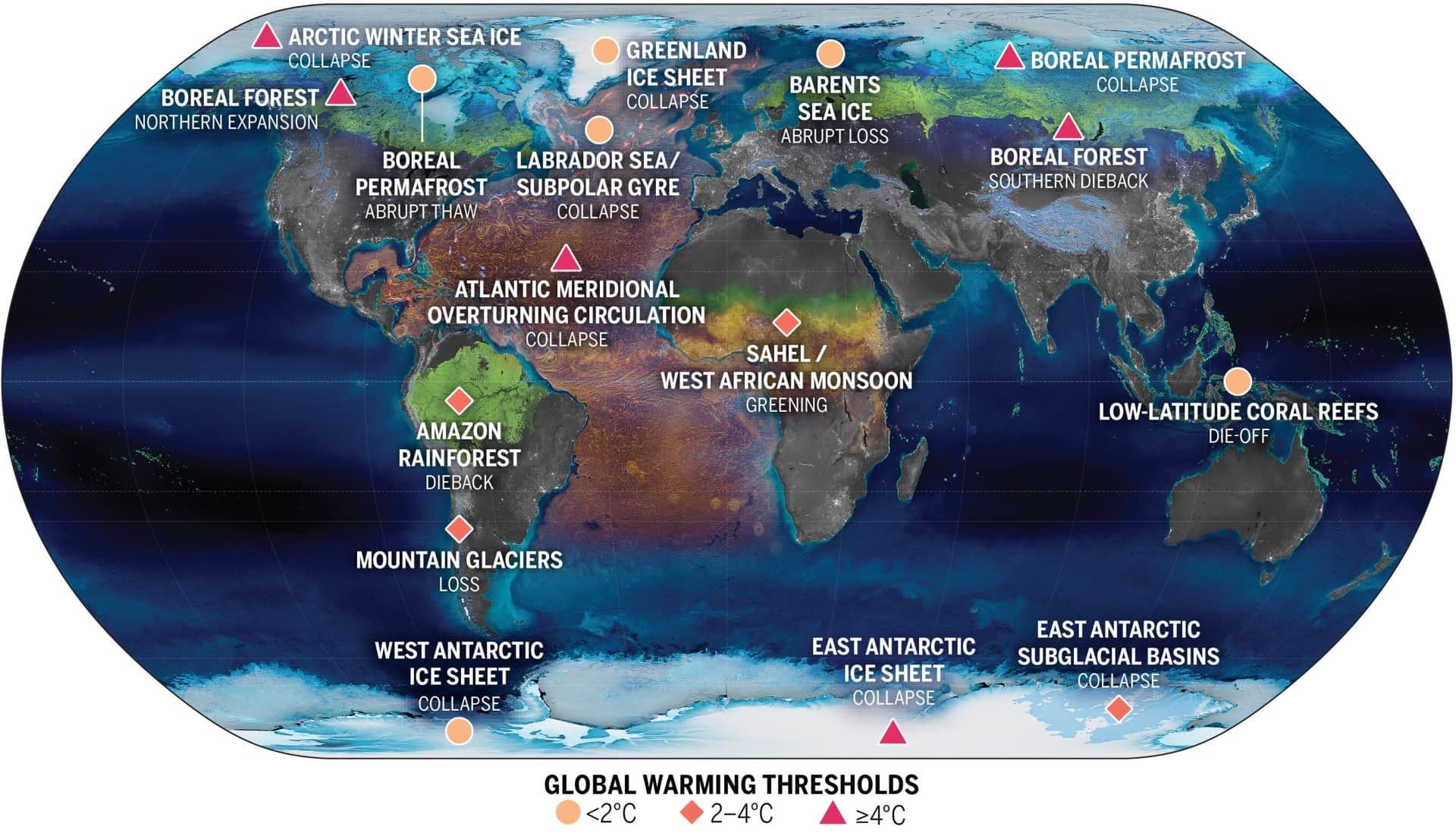Multiple Climate Tipping Points Likely to Be Triggered by 1.5 ºC of Global Warming, Researchers Warn
New research indicates that the melting of sea ice, thawing of permafrost and changing of ocean current would be accelerated.
New research indicates that the world is on the brink of five “disastrous” climate tipping points as global temperatures have exceeded the pre-industrial average by 1.1 ºC.
“Climate tipping points are conditions beyond which changes in a part of the climate system become self-perpetuating,” the researchers wrote in the study published in Science, which assessed more than 200 previous studies.
“These changes may lead to abrupt, irreversible and dangerous impacts with serious implications for humanity,” they added.
See Also:Europe Endures Hottest Summer on RecordAmong the five tipping points passed as global temperatures reached the 1.1 ºC mark are ice sheet collapses in Greenland and West Antarctica, changes in a significant north Atlantic ocean current, biodiversity loss in tropical coral reefs and abrupt permafrost loss.
The researchers said these events would have profound impacts on the climate. Loss of ice mass at the poles is expected to result in significant sea level rise, while changes to the Labrador current will profoundly alter Europe’s climate. The thawing of permafrost is also expected to release tons of carbon into the atmosphere.
As temperatures reach the 1.5 ºC threshold, the minimum rise now expected, researchers indicated that four of those five tipping points would move from “possible” to “likely,” while five new tipping points would become possible. These include mountain glacier loss and the migration of forests farther north.

“This provides really strong scientific support for rapid cutting of emissions in line with the 1.5 °C goal,” David Armstrong McKay, a climate researcher at the University of Exeter and lead author of the study, told New Scientist.
“But the closer you get to 2°C, the more likely some of these tipping points get,” he added. “Where we’re heading at the moment is something like 2.6°C – that’s definitely going to hit lots of tipping points.”
At the 2 ºC threshold, the researchers warned that a further six tipping points would also become more likely.
They concluded that the study provided more evidence for urgent action to mitigate climate change, adding that further studies would need to be done to delve more deeply into each tipping point.
“The world is heading towards 2 ºC to 3 ºC of global warming,” Johan Rockström, director of the Potsdam Institute for Climate Impact Research and a co-author of the study, told The Guardian.
“This sets Earth on course to cross multiple dangerous tipping points that will be disastrous for people across the world,” he concluded. “To maintain liveable conditions on Earth and enable stable societies, we must do everything possible to prevent crossing tipping points.”








